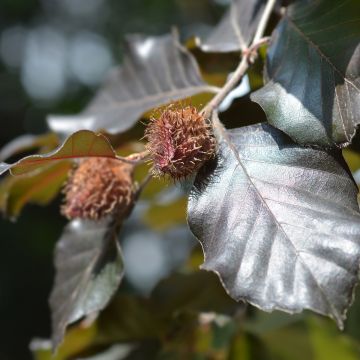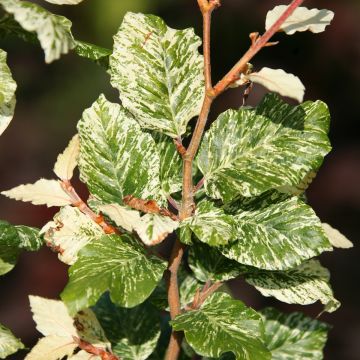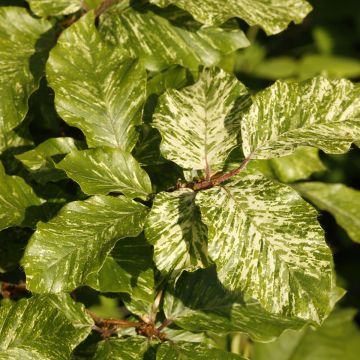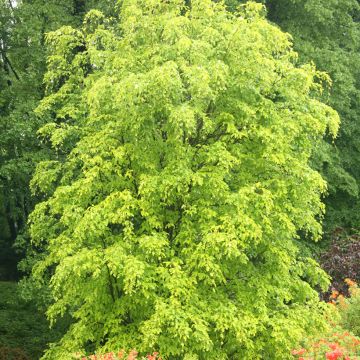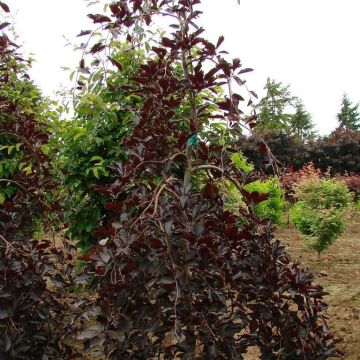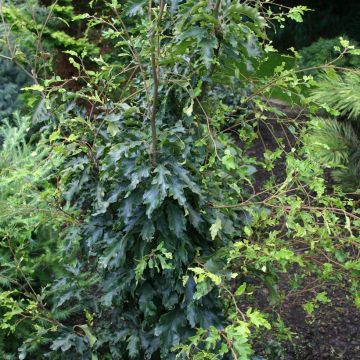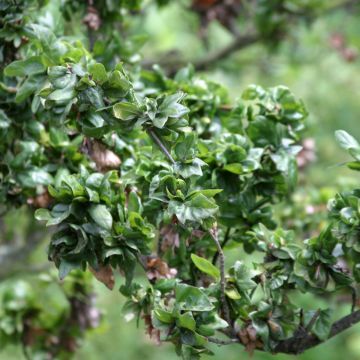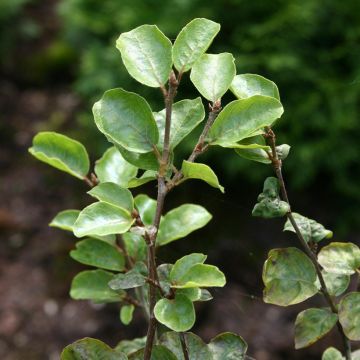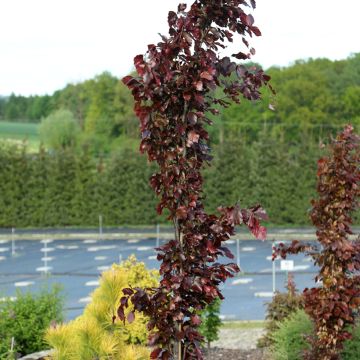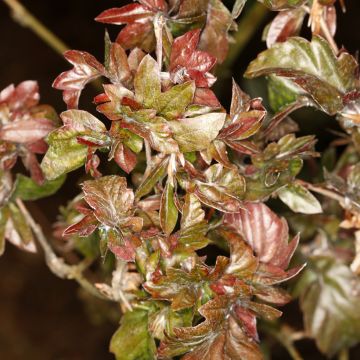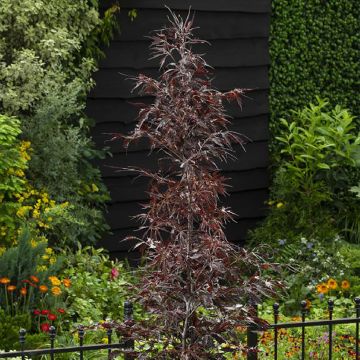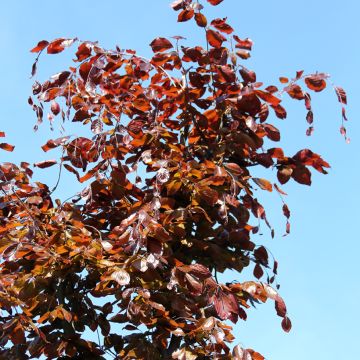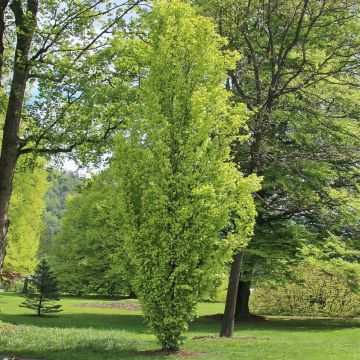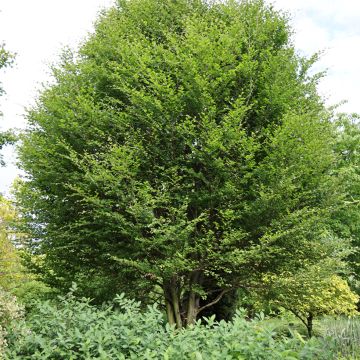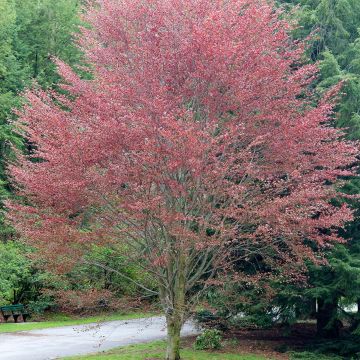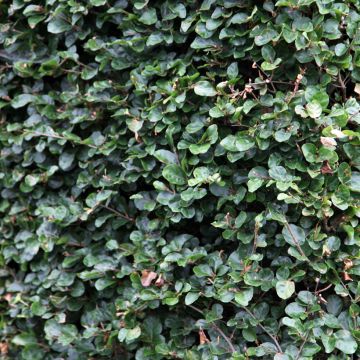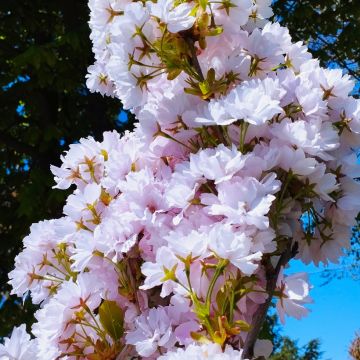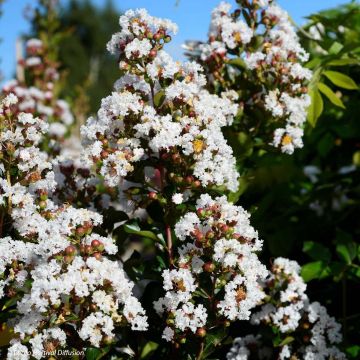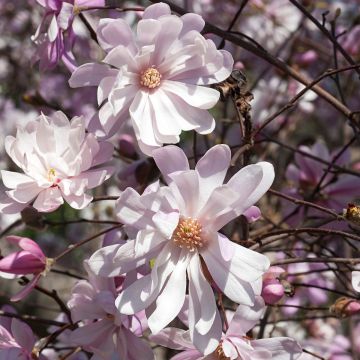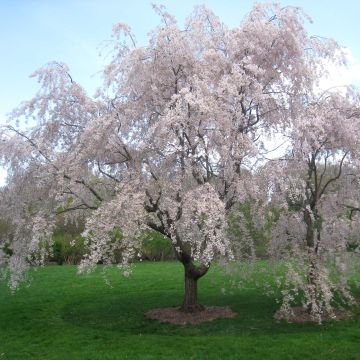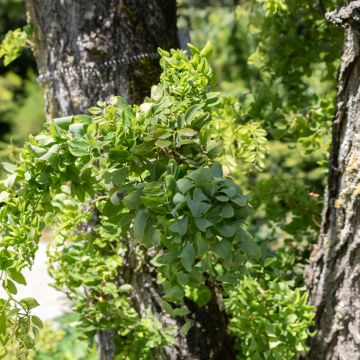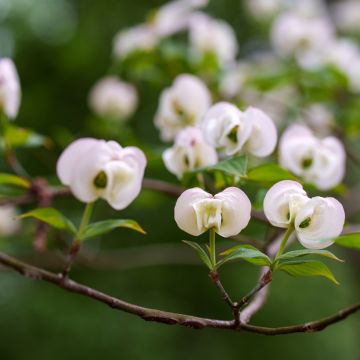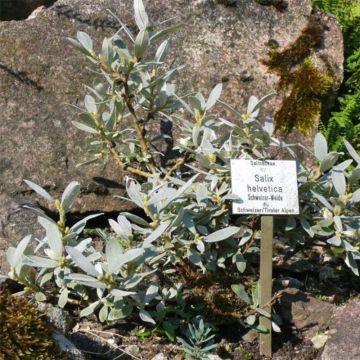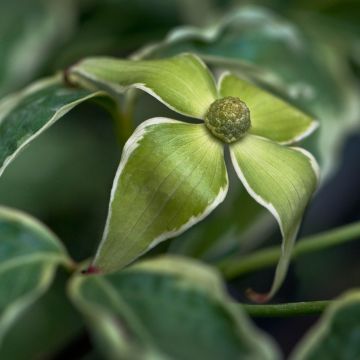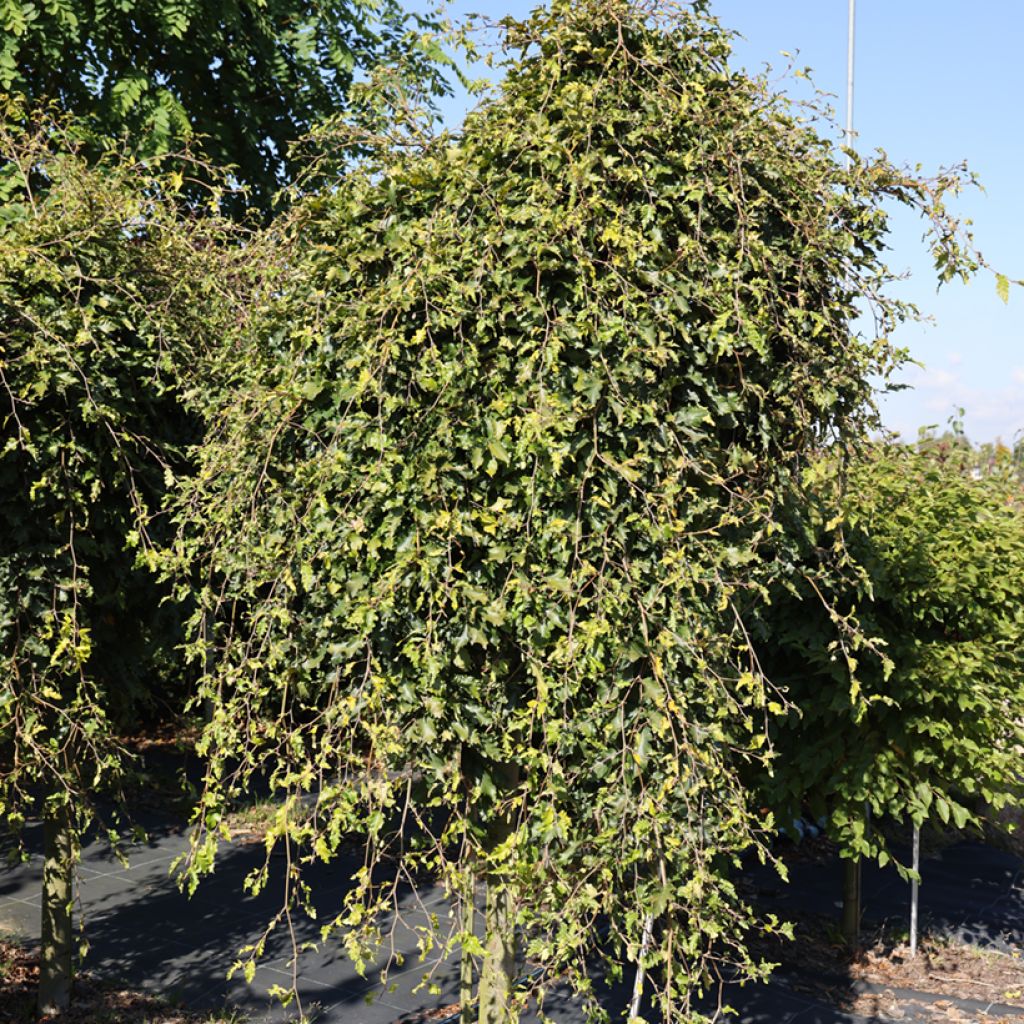

Fagus sylvatica Rohan Green Weeping
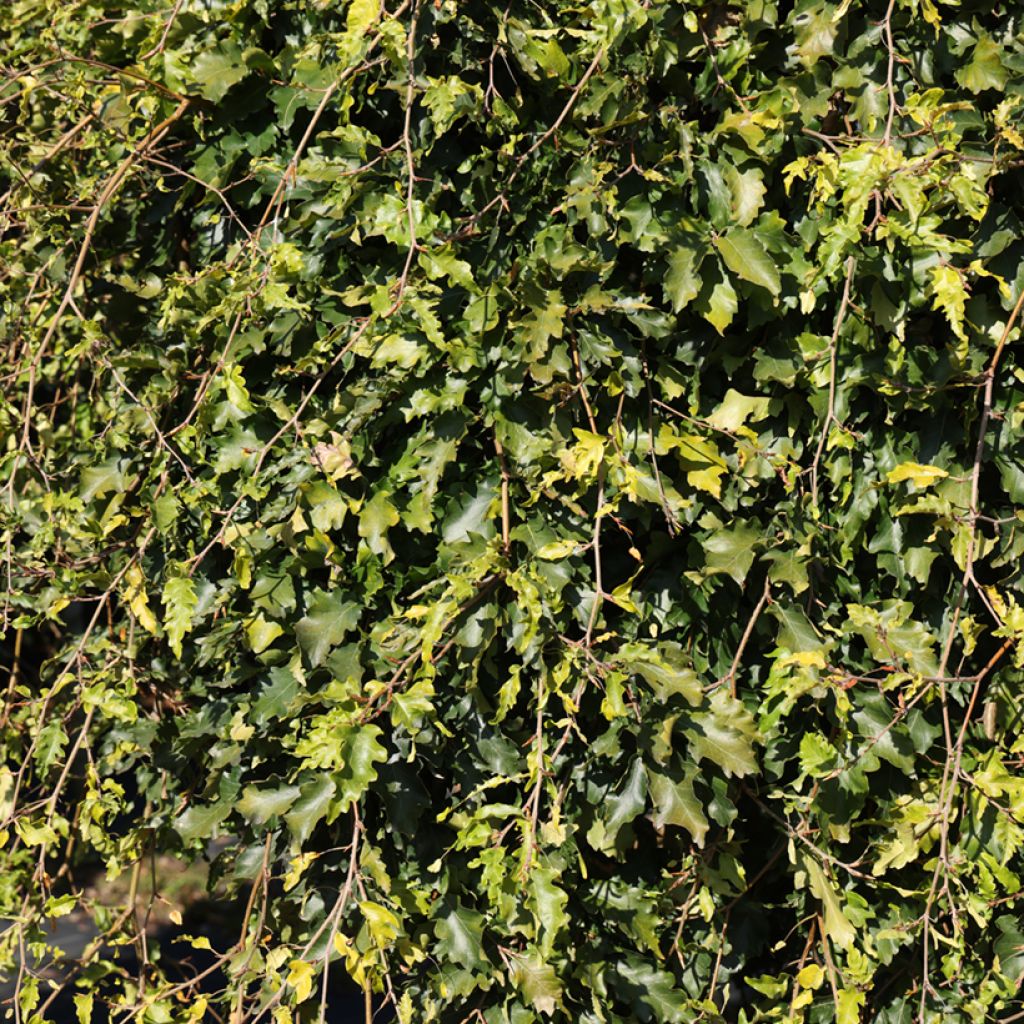

Fagus sylvatica Rohan Green Weeping
Fagus sylvatica Rohan Green Weeping
Fagus sylvatica Rohan Green Weeping
European Beech, Common Beech
Special offer!
Receive a €20 voucher for any order over €90 (excluding delivery costs, credit notes, and plastic-free options)!
1- Add your favorite plants to your cart.
2- Once you have reached €90, confirm your order (you can even choose the delivery date!).
3- As soon as your order is shipped, you will receive an email containing your voucher code, valid for 3 months (90 days).
Your voucher is unique and can only be used once, for any order with a minimum value of €20, excluding delivery costs.
Can be combined with other current offers, non-divisible and non-refundable.
Why not try an alternative variety in stock?
View all →This plant carries a 24 months recovery warranty
More information
We guarantee the quality of our plants for a full growing cycle, and will replace at our expense any plant that fails to recover under normal climatic and planting conditions.
Would this plant suit my garden?
Set up your Plantfit profile →
Description
Fagus sylvatica 'Rohan Green Weeping' is a rare variety of Common Beech that stands out for its compact weeping habit and wavy, toothed leaves. It grows slowly to form a curtain of foliage around the main stem. This small tree reaches a height of only 3m with a spread of 2.50m at maturity. In autumn, the green leaves take on a coppery hue before drying out, remaining attached to the branches until the new leaves appear in spring. This variety is easy to cultivate and will be particularly interesting for small gardens.
The beech, known as Fagus sylvatica in Latin, is an imposing tree with a spreading habit. Its cylindrical trunk is covered with smooth, light grey bark. This tree can live for several centuries. Native to central Europe to the Caucasus, it is one of the most common species in European forests. Its reddish wood is used in cabinetmaking and for the production of wooden tools and toys, as well as for firewood. It is very hardy and can reach a height of 20m at maturity.
The cultivar 'Rohan Green Weeping' has a weeping habit. Over time, its branches will form a dense cascade to the ground, hiding the trunk behind its curtain of foliage. Its foliage consists of alternate leaves with wavy edges, giving them the appearance of oak leaves. They appear in spring before those of the common beech. Green throughout the year, they turn coppery in autumn. They are marcescent, meaning they dry out while remaining on the tree until the following spring when new leaves emerge. The flowers appear almost at the same time as the leaves. From April to May, barely visible, monoecious cream flowers appear. The male flowers are grouped in pendulous catkins. The female flowers are grouped in 2 to 4 at the end of the branches. Mature specimens produce shiny brown beech nuts, covered with bristly prickles. These fruits are edible in small quantities. Mountain dwellers used to use them to make flour.
Fagus sylvatica 'Rohan Green Weeping' is a very hardy tree. It prefers partial shade and non-scorching sunlight and thrives in cool and temperate climates. The soil should be moist and well-drained, with a constant level of humidity, as it does not tolerate drought. When planted alone, it has an elegant and romantic presence. It can also be integrated into a bed of small shrubs with varied foliage that it overlooks without smothering. Consider, for example, a purple hazel or a contorted hazel. Plant it near perennial ground cover plants or dwarf conifers, for example. It can also be trained as a topiary, grown in a large container, or made into a bonsai. Thanks to its small size, it is suitable for small gardens. It tolerates pruning well, which may be necessary if you want to keep the trunk visible.
Report an error about the product description
Plant habit
Flowering
Foliage
Botanical data
Fagus
sylvatica
Rohan Green Weeping
Fagaceae
European Beech, Common Beech
Cultivar or hybrid
Other Fagus - Beech
View all →Planting and care
Fagus sylvatica Rohan Green Weeping enjoys partial shade and non-scorching sunlight. It thrives in cool and temperate climates. The soil should be moist and well-drained, with a constant level of humidity, as it does not tolerate drought. Plant it with its root ball intact to give it the best chance of a long life. In February-March, when the tree is dormant, remove any branches that compromise its symmetry or are tangled, to maintain a good habit. Be aware of aphids, scale insects, and mildew.
Planting period
Intended location
Care
This item has not been reviewed yet - be the first to leave a review about it.
Similar products
Haven't found what you were looking for?
Hardiness is the lowest winter temperature a plant can endure without suffering serious damage or even dying. However, hardiness is affected by location (a sheltered area, such as a patio), protection (winter cover) and soil type (hardiness is improved by well-drained soil).

Photo Sharing Terms & Conditions
In order to encourage gardeners to interact and share their experiences, Promesse de fleurs offers various media enabling content to be uploaded onto its Site - in particular via the ‘Photo sharing’ module.
The User agrees to refrain from:
- Posting any content that is illegal, prejudicial, insulting, racist, inciteful to hatred, revisionist, contrary to public decency, that infringes on privacy or on the privacy rights of third parties, in particular the publicity rights of persons and goods, intellectual property rights, or the right to privacy.
- Submitting content on behalf of a third party;
- Impersonate the identity of a third party and/or publish any personal information about a third party;
In general, the User undertakes to refrain from any unethical behaviour.
All Content (in particular text, comments, files, images, photos, videos, creative works, etc.), which may be subject to property or intellectual property rights, image or other private rights, shall remain the property of the User, subject to the limited rights granted by the terms of the licence granted by Promesse de fleurs as stated below. Users are at liberty to publish or not to publish such Content on the Site, notably via the ‘Photo Sharing’ facility, and accept that this Content shall be made public and freely accessible, notably on the Internet.
Users further acknowledge, undertake to have ,and guarantee that they hold all necessary rights and permissions to publish such material on the Site, in particular with regard to the legislation in force pertaining to any privacy, property, intellectual property, image, or contractual rights, or rights of any other nature. By publishing such Content on the Site, Users acknowledge accepting full liability as publishers of the Content within the meaning of the law, and grant Promesse de fleurs, free of charge, an inclusive, worldwide licence for the said Content for the entire duration of its publication, including all reproduction, representation, up/downloading, displaying, performing, transmission, and storage rights.
Users also grant permission for their name to be linked to the Content and accept that this link may not always be made available.
By engaging in posting material, Users consent to their Content becoming automatically accessible on the Internet, in particular on other sites and/or blogs and/or web pages of the Promesse de fleurs site, including in particular social pages and the Promesse de fleurs catalogue.
Users may secure the removal of entrusted content free of charge by issuing a simple request via our contact form.
The flowering period indicated on our website applies to countries and regions located in USDA zone 8 (France, the United Kingdom, Ireland, the Netherlands, etc.)
It will vary according to where you live:
- In zones 9 to 10 (Italy, Spain, Greece, etc.), flowering will occur about 2 to 4 weeks earlier.
- In zones 6 to 7 (Germany, Poland, Slovenia, and lower mountainous regions), flowering will be delayed by 2 to 3 weeks.
- In zone 5 (Central Europe, Scandinavia), blooming will be delayed by 3 to 5 weeks.
In temperate climates, pruning of spring-flowering shrubs (forsythia, spireas, etc.) should be done just after flowering.
Pruning of summer-flowering shrubs (Indian Lilac, Perovskia, etc.) can be done in winter or spring.
In cold regions as well as with frost-sensitive plants, avoid pruning too early when severe frosts may still occur.
The planting period indicated on our website applies to countries and regions located in USDA zone 8 (France, United Kingdom, Ireland, Netherlands).
It will vary according to where you live:
- In Mediterranean zones (Marseille, Madrid, Milan, etc.), autumn and winter are the best planting periods.
- In continental zones (Strasbourg, Munich, Vienna, etc.), delay planting by 2 to 3 weeks in spring and bring it forward by 2 to 4 weeks in autumn.
- In mountainous regions (the Alps, Pyrenees, Carpathians, etc.), it is best to plant in late spring (May-June) or late summer (August-September).
The harvesting period indicated on our website applies to countries and regions in USDA zone 8 (France, England, Ireland, the Netherlands).
In colder areas (Scandinavia, Poland, Austria...) fruit and vegetable harvests are likely to be delayed by 3-4 weeks.
In warmer areas (Italy, Spain, Greece, etc.), harvesting will probably take place earlier, depending on weather conditions.
The sowing periods indicated on our website apply to countries and regions within USDA Zone 8 (France, UK, Ireland, Netherlands).
In colder areas (Scandinavia, Poland, Austria...), delay any outdoor sowing by 3-4 weeks, or sow under glass.
In warmer climes (Italy, Spain, Greece, etc.), bring outdoor sowing forward by a few weeks.






























